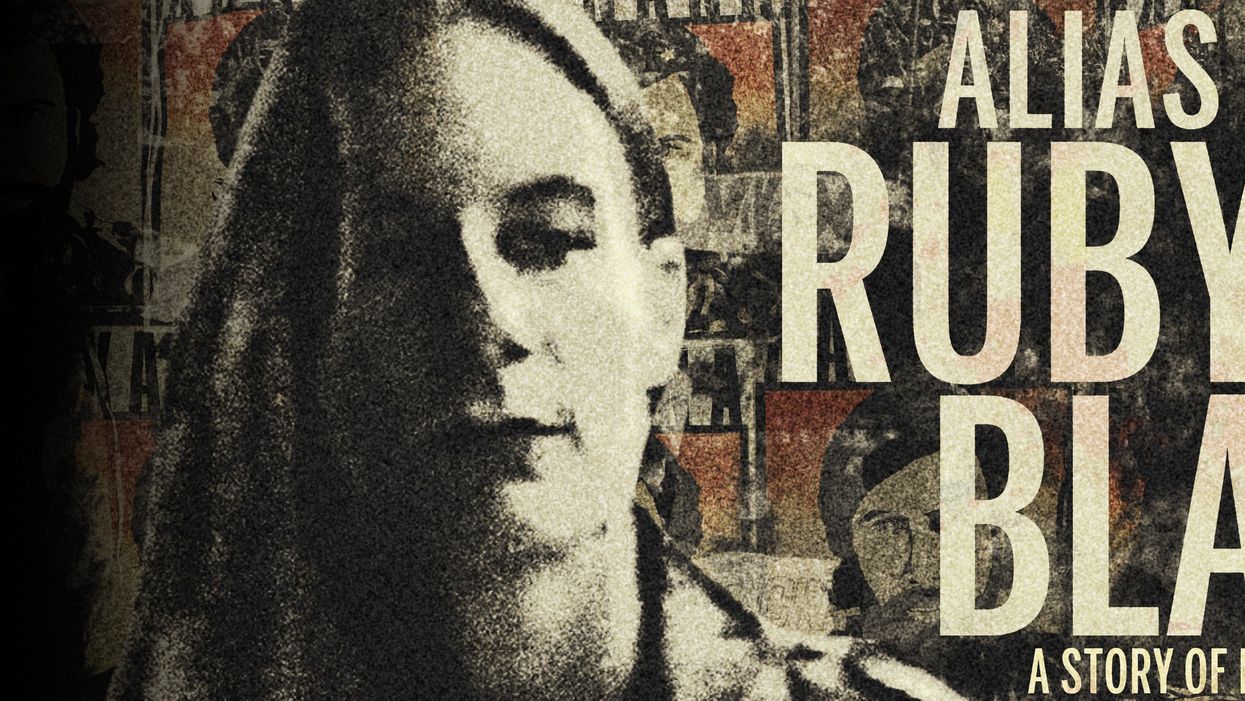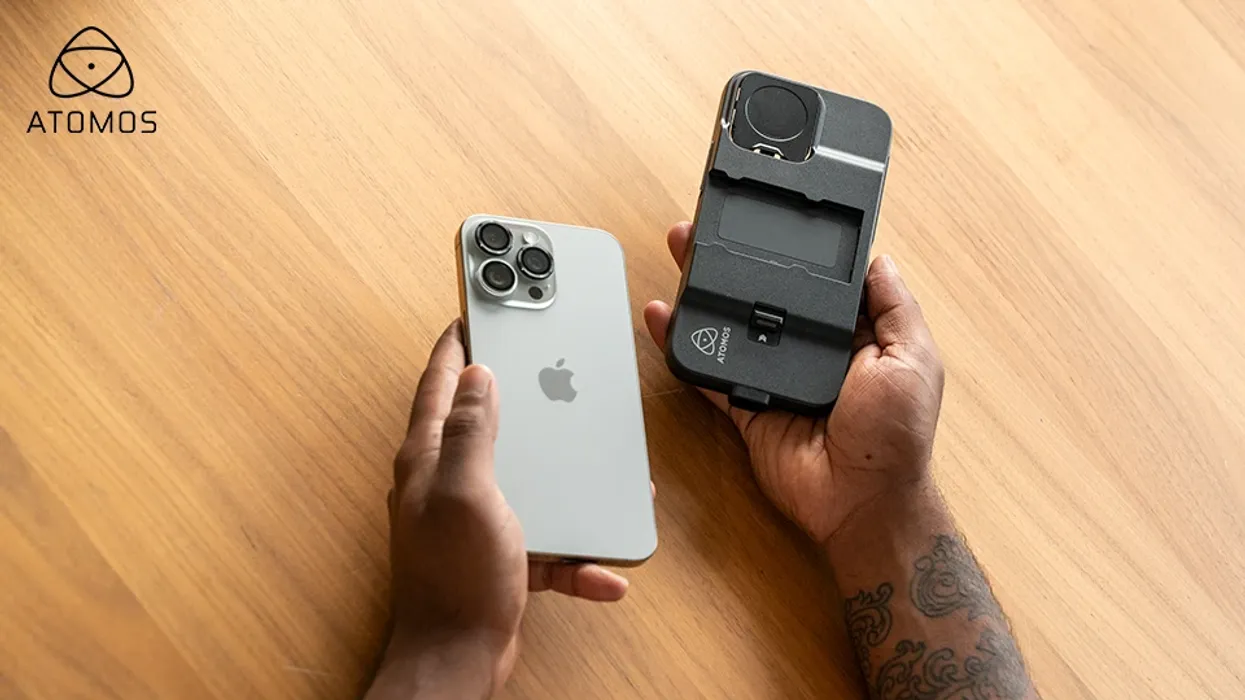First Time at Tribeca: 'Alias Ruby Blade' Forgets Hollywood and Tells a Real Spy Love Story

Amidst a revolution to overthow invading oppressors, a beautiful young woman becomes a spy for the resistance under the moniker 'Ruby Blade.' While she sneaks in messages to the imprisoned, non-violent leader of said resistance, they begin a glorious love affair. And get this, it's not starring Leo DiCaprio, it's a true story! From chasing sharks to helicoptering heads-of-state, filmmakers Alexander Meillier and Tanya Ager Meillier are taking their very first feature documentary Alias Ruby Blade to Tribeca. Director Alex Meillier was kind enough to sit down with NFS to explain just how you go about telling an action-adventure love story...that really happened. Read on for the interview, plus a way you can watch it online through Tribeca tonight.
NFS: Alias Ruby Blade is this real life spy thriller with unbelievable footage of the East Timor revolution, not to mention a love story unfolding on tape. Can you talk about how you came across this footage and larger-than-life tale?
AM: We were stationed in East Timor working for the United Nations Mission in Support of East Timor in 2005. We became intimately aware of the story of the revolution and inspired by the incredible courage and resilience of the Timorese. When we returned home to New York, we started to imagine how we could craft a documentary film out of the personal stories of the key members of the resistance. We knew that the hero of the resistance, Kay Rala “Xanana” Gusmao, would have to be a central character in any film about the revolution. We then found out that his Australian wife, the First Lady of East Timor, Kirsty Sword Gusmao, was herself a central character in the resistance and that she had aspired to become a documentary filmmaker. When they fell in love he was serving life in a Jakarta jail and she was working as a secret courier for the Timorese resistance code-named “Ruby Blade”. We reached out to her and asked if she still had the tapes. She said yes and we were welcome to come take a look. When we saw what she had including the video “letters” they smuggled out of the prison to each other and the dramatic footage of their return together to the country after the historic referendum, we were blown away. We decided her story would become the primary point of view.
The trailer for this revolutionary love story:
NFS: How on earth did you get access to Kirsty Sword Gusmao – aka “Ruby Blade” – the First Lady of East Timor – and win her over for the project?
AM: It’s tricky to pitch to someone a story about their own life… But I think she trusted us because we had the journalistic credentials and we were coming from the right place. We saw the film unfolding through her point of view but we never saw the film as being about a Western woman coming to save the Timorese - we wanted this film to be about different people coming together, united by a common purpose and motivated by moral conscience. The fact that we were willing to fly all the way out East Timor just to meet with her during a period of some instability also helped.

NFS: When you work with subjects who have legacies surrounding them, does that add complications as to how you cover them? How do you work with people like that?
AM: With Kirsty it’s difficult because her priority is definitely not making our film – she has her foundation, UNESCO responsibilities, etc… – so we have to be respectful of that and conscientious of her time. In other cases, like for example when we interviewed the then President and Nobel Prize winner Jose Ramos Horta, you have to be really prepared because when you are interviewing a head of state sometimes you have fifteen minutes at best and that’s it. The minute he or she sits down you start to roll and their assistants are glaring at you throughout the whole interview…
NFS: You and Tanya Ager Meillier, the Producer of Alias Ruby Blade, have your own love story, right? How’d you meet and start collaborating?
AM: We both started out as shooters. Tanya was working as a divemaster aboard an expedition yacht filming her journeys and chasing sharks. I was traveling a lot, shooting docs and television and working as a video journalism trainer. Tanya came to New York to transition to dry land and we hatched a grand plan to travel the world, live, love and make films, and maybe leave the world a little better than the way we found it along the way. The first project we did together was when we were stationed together in East Timor in 2005.

NFS: Working with the UN in potential conflict zones, chasing sharks underwater...how do you prepare yourself to film in what sound like very dangerous situations? I mean...do you train for this kind of stuff?
I don't think we were ever in any great danger in Timor. I can't speak for Tanya chasing sharks - which to me is utterly terrifying but she will tell you that if you understand their behavior, you are not in danger. I think the important thing is just to keep your head and to stay calm.
NFS: Is there a reason certain types are attracted or at least capable in these types of filmmaking scenarios?
Are we adrenaline junkies in other words? Maybe. I could only speculate what a filmmaker like Max was feeling when he filmed the 1991 massacre. We tried to do it justice in the film but, yeah, I have no idea how he was able to frame a shot.

NFS: This is your first feature doc as director, but you and Tanya edited features such as “Obscene” (2007 TIFF) and Michael Moore’s “Capitalism: a Love Story.” Did being an editor prepare you to direct? And what's it like working with Michael Moore anyway?
AM: If you want to make documentaries, I highly recommend you try editing one… I think it’s the best preparation.
As far as working with Michael let’s just say that when you are privileged to be working on that level you better have a lot to bring to the table creatively and be prepared to work hard. We learned a great deal from working with him and from that whole experience. When you look at the roster of filmmakers that have worked with Michael in the past you will see so many of them that went on to incredible careers as filmmakers themselves and that is no accident. After that experience we felt more confident than ever in our ability to pull off Alias Ruby Blade. When Capitalism premiered at Venice we were already riding elephants in Laos and making our way to Timor. We’ve also been lucky enough to work with some other great filmmakers such as John Walter, who we have collaborated with on a number of projects and continue to do so today.
NFS: Well, now if you worked with John Walter while riding elephants, I'd really be impressed! So did you edit Alias Ruby Blade yourselves?
AM: We edited our own film out of necessity. It’s expensive to hire an experienced editor – we know because we do that ourselves for a living… But we won’t edit our own film next time if we can help it. Ideally, you can have a relationship with an editor where it’s a creative collaboration and the sum is greater than the parts.
NFS: To me the obvious genre of Alias Ruby Blade is action movie. But there's these strangely sharp delineations between docs right now as "social issue" and not. Do you consider Alias a social issue film?
AM: We wanted to tell that story in a way that would appeal to a wide audience. So we really started with the idea that we wanted to make the most gripping piece of cinema that we possibly could and that is why we gravitated towards the most raw unrefined footage we could find and why we fueled the film with a rock’n’roll soundtrack. We want people who know nothing about our subject to appreciate the film just as it is and then tell their friends to go and see it. If enough people do that, then I think you have the opportunity to try to engage that audience with the issues in the film. If anything, this is a film about how ordinary people have the power to change the world and that message has power.

NFS: From everything you learned on your first feature-length doc, are there any useful takeaways that you could share with readers?
AM: Be humble but trust yourself. And make sure you get good sound.
***
Thank you Alex!
If you're in NY, check out the North America premiere of Alias Ruby Blade at Tribeca, and if you're not, well lucky for us, we can still watch from the comfort of our own homes tonight thanks to the Tribeca Online Festival (TOF). If you are in the United States, log-in here and watch a handful of the festival films -- including Alias Ruby Blade -- and vote on what you like. I don't know about you, but this combines all the stuff I dig: eating popcorn on the couch, watching an excellent action-movie-love-story, and passing down judgement from my pajamas.
What are your thoughts on real life epics? Do you want the true story or the Hollywood remake?
Links:












